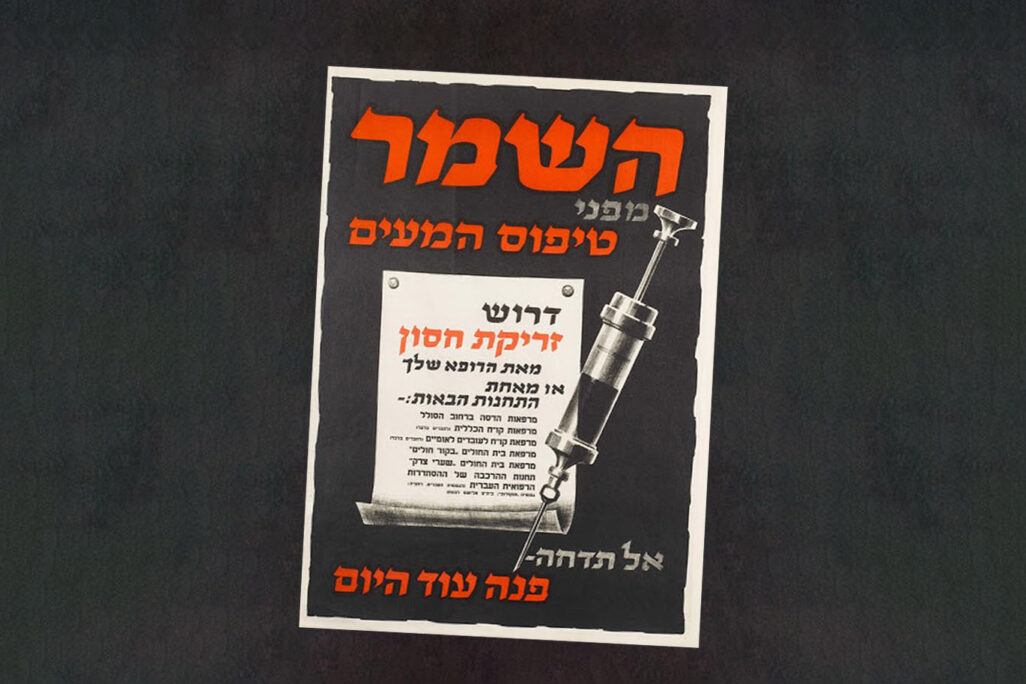
Beware of typhoid fever!" proclaims a Ministry of Health advertisement from April 1952, seeking to promote the country’s first nationwide vaccination campaign against the disease’s spread.
"Our country is one of the only countries in the world where intestinal typhoid has increased in recent years,” the poster continues. “2,667 people contracted the above diseases in the years 1950-1951. The disease can be prevented! Most of the countries of Europe and America have succeeded. We will do the same."
According to some, the vaccination campaign against COVID-19 today contains echoes of the typhoid crisis 70 years ago. Then too, an extensive vaccine drive was organized by the government, and like today, not everyone hurried to comply.
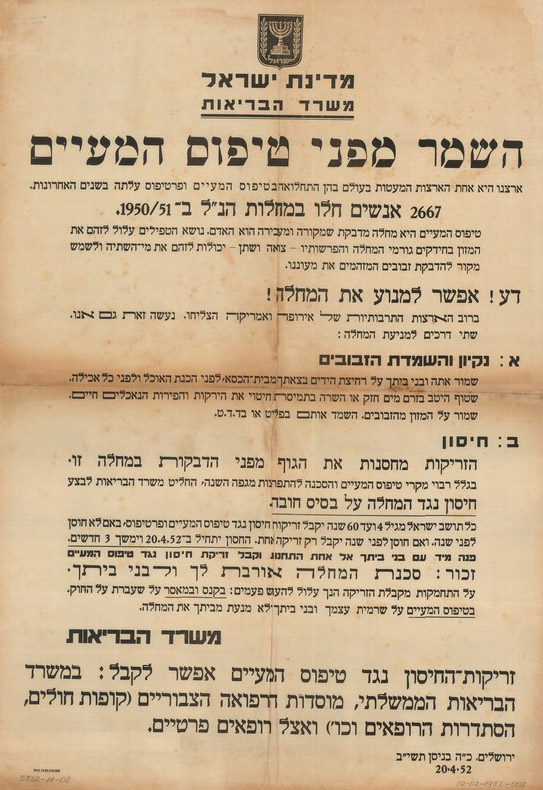
"It was required to get vaccinated, and the Ministry of Health threatened to punish those who evaded receiving the shot with a fine and imprisonment," Dr. Rakefet Zelshik, a historian specializing in the Israeli health system, told Davar.
“The bulk of the vaccination campaign was conducted in the schools, the army and the immigrant camps – it was convenient for the state to vaccinate in places where the people gathered,” she continued. “They called on all residents of Israel to receive free vaccines at the public health funds and private clinics."
According to Zelshik, the campaign was not nearly effective enough.
"Only 55% of the country's residents were vaccinated. And I do not know of any punishments that were actually carried out," she said.

Abdominal typhoid – in those days called "typhoid" or “intestinal typhoid,” is a serious and infectious disease of the gastrointestinal tract caused by the bacterium salmonella typhi. This bacteria is not the salmonella known from food poisoning, but another strain from the same family. The disease is transmitted by lice or contaminated food and drinking water, and was common in ghettos and among soldiers who did not bathe for long periods. The disease can be treated by antibiotics and prevented by vaccination.
"It is a common disease in developing countries," said Zelshik. "It causes mortality, especially in children. It seems that many immigrants who came to Israel after the establishment of the state brought the disease with them."
"A lot of the patients died. I recovered"
"It was an epidemic similar to coronavirus," said Yaakov Levy, 82, now a resident of Jerusalem. He contracted typhoid at the end of World War II.
"I grew up in Sofia. During the war, we were deported to distant ghettos. The war in Bulgaria ended in September 1944, and afterwards, we returned to the capital Sofia,” he told Davar. “I was completely exhausted from the journey and had typhoid fever."
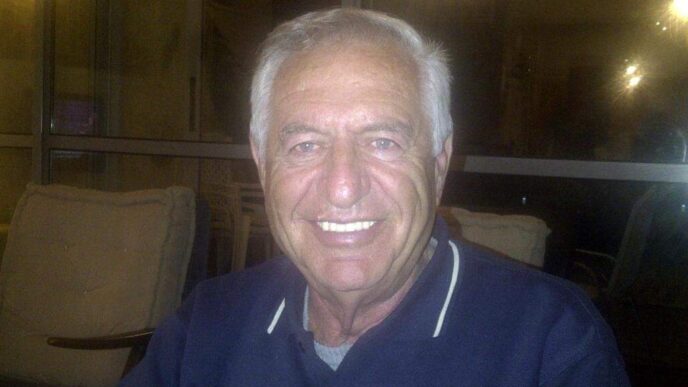
Levy recalls that he and the other children were placed in a large hall filled with rows of beds.
“My bed was next to the entrance of the hall. Mother would sleep next to me at night on a folding mattress,” he recalled. “Many of the patients died. I recovered after two weeks."
"At one point, when I started to recover and could stand on my own two feet in bed, I would open the door and shout in Bulgarian, 'Let me eat, let me eat,'” Levy recounted. “We were only allowed to eat yogurt. For two weeks, I ate only yogurt, and I do not want to describe at all how it made me feel about dairy products. Every time I just smelled yogurt I wanted to vomit, and it did not go away until I enlisted in the IDF.”
Levy identifies similarities between the corona and typhoid epidemics, but says that what characterizes corona is the isolation and loneliness.
"Luckily, I grew up with thick skin, “ he said. “I’ve been through a lot of things in my life, and let's just say, somehow I got through it. As soon as I could, I hurried to get vaccinated against the coronavirus. I was among the first."
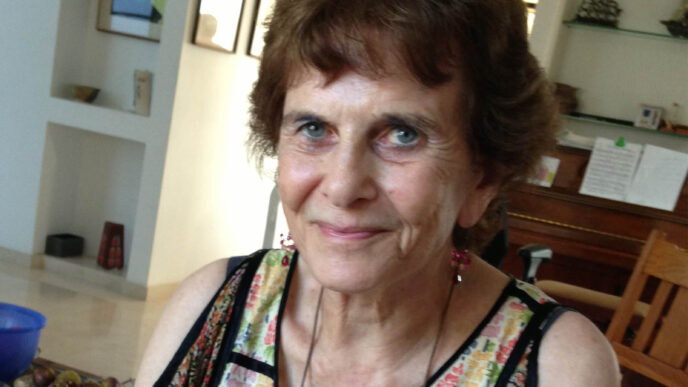
Nira Orni (85) was vaccinated against typhoid in a school in Petach Tikvah for children of workers at the Hess Company.
"There was great fear," she said. "We were vaccinated against smallpox and re-vaccinated against typhoid. All the children stood in line outside the school doctor's room. We came in one by one to get the vaccine and everyone was scared. I ran away every time.”
“The injections were much more painful at the time,” she continued. “Today there are delicate needles. The needles used to be blunt, and it was painful both during the injection and after the injection."
"Doctors and Ministry of Health argue"
According to Dr. Zelshik, typhoid fever has broken out in the country several times.
"Under the Ottomans, the sanitation situation in the country was very poor and they did not fight such diseases,” she said. “The British, on the other hand, took care of the sanitary situation and began to carry out mandatory vaccinations, mainly against smallpox. "
There was another significant outbreak of the disease in 1936, but there was no inoculation requirement against typhoid, even though it was very common and mainly affected children.
“After the establishment of the state, they tried to introduce a vaccination requirement, but it did not succeed,” Zelshik explained. “The disease was widespread, we know that the disease also spread among the Arab residents of the country."
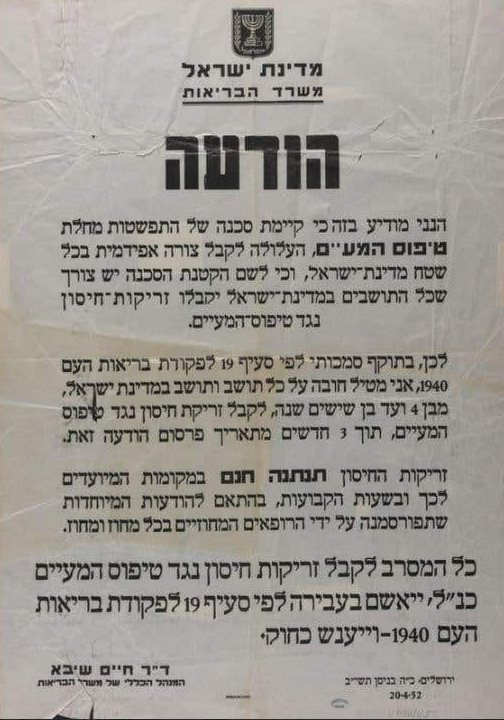
Dr. Zelshik reports that then, similar to now, the doctors and the Ministry of Health sparred over the best way to deal with the disease – hygiene or mass vaccination.
“The vaccine was given in three doses and therefore it was difficult to vaccinate the entire population. In 1950-51, only about 200 people were vaccinated,” she said. "People were changing their names and getting new certificates. It should be remembered that there was not yet the good information systems that we have today."
"Bacteria are international and inter-party"
On March 27, 1952, MK Emil Habibi (MKI) raised a question with the Minister of Health regarding the outbreak of the disease in the cluster of Arab villages in the country’s center. Health Minister Yosef Burg replied that his ministry was taking measures to prevent the spread of typhoid fever not only in Taybeh and neighboring villages, but throughout the country.
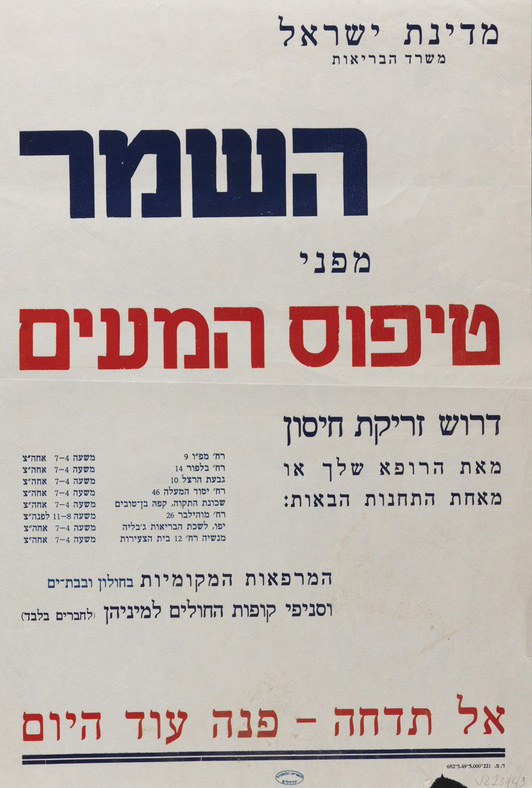
"On April 20, the vaccine will be given to all residents of the country," the minister announced, "And this vaccination will last three months. The vaccine injections will be given free of charge to all residents. The virus is international and inter-party, and our office knows how to act accordingly."
Zelshik explained that a large portion of the campaign was directed toward new olim, who had been placed in immigrant camps after their aliyah, and before that spent time in crowded ships and transit camps.
"They vaccinated all IDF soldiers and schoolchildren,” Zelshik said. “They campaigned to encourage the public to access health funds and clinics and request vaccinations. The vaccine is state-funded and given for free. But in the end, it was not a dizzying success."
According to Zelshik, the low response to the vaccine drive probably had to do with the fact that typhoid was considered less serious than other diseases like tuberculosis at the time.
“Although vaccines were seen as a matter of progress, as a right the state gives to its citizens, responsiveness was low,” she said. "There was no movement to resist vaccines as there is today, but people voted with their feet.”






